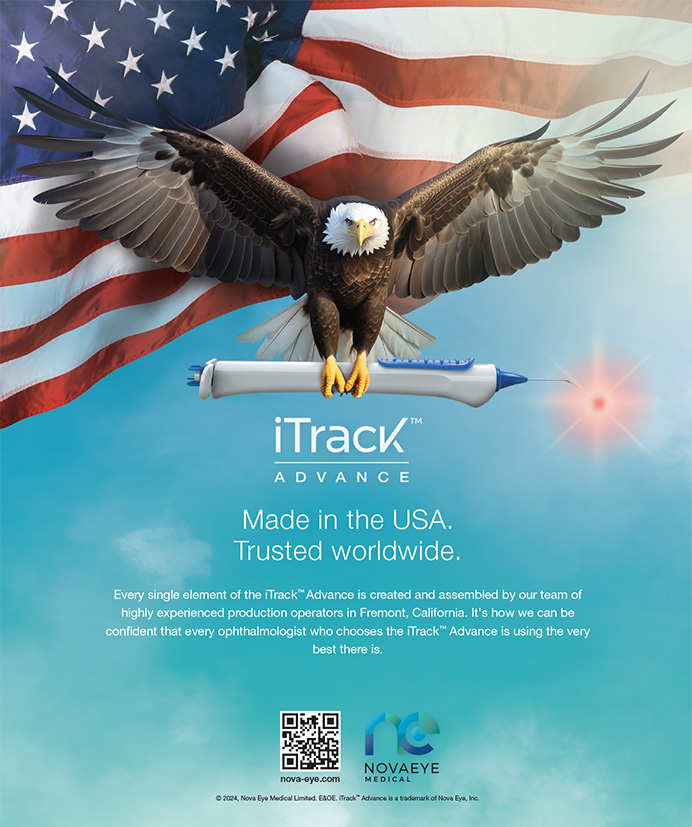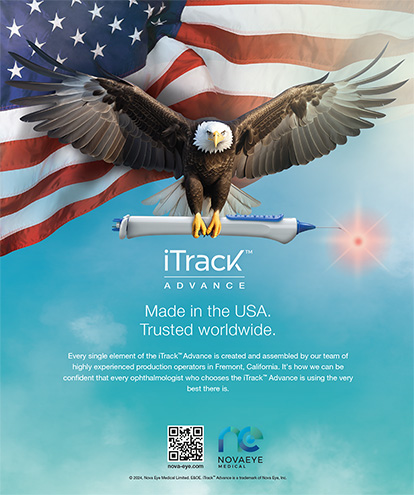In the words of the character Ulysses Everett McGill (played by George Clooney) in O Brother, Where Art Thou? the 2000 film from Joel and Ethan Coen, "We're in a tight spot!"
In September 2008, I spoke at Cataract & Refractive Surgery Today's annual Refractive IOL Symposium in Las Vegas and offered dire economic predictions that thoroughly depressed the audience. Refractive and premium IOL surgeons already knew that something was very wrong with their practices, but the scope of the problem was less clear. New refractive consultations were slowing alarmingly, and the publicly traded laser vision correction companies were reporting dismal numbers.
Nevertheless, at that time, the Dow was over 11,000, and the full significance of the United States' economic situation was not widely appreciated. I predicted that the Dow would soon plummet and that the banking and credit crisis would intensify. I pointed out the enormous and essentially unprecedented impact of the failure of three of the five major US investment banks, with the remaining two (Goldman Sachs and Morgan Stanley [both located in New York City]) facing reorganization as tightly regulated commercial banks. These investment banks had happily fueled the go-go capitalism of the past several years of economic growth in the United States. This behavior, coupled with wildly easy access to credit, resulted in a huge collective bill that had finally come due. What could we expect to happen next? I became increasingly concerned as the bond market adopted a posture ominously predicting widespread economic collapse in multiple industries. Each week brought more bizarre occurrences. Then, on October 23, 2008, Alan Greenspan testified that his fundamental ideology concerning the laws of economics contained "a flaw."1
The financial situation continues to grow stranger. We now face an economic challenge far greater than the aftermath of the attacks of September 11, 2001. Sadly, I believe that we have only seen the tip of the iceberg. Many large, established corporations may fail. The rate of unemployment will certainly rise. Residential and commercial real estate could see prices collapse far beyond current levels. Also, although fuel prices fell recently, the phenomenon could easily be short term once production cuts kick in. This giant mess will end someday, but it is going to last for a while.
Economic contractions (and expansions) are nonlinear for many reasons, but largely because the effects on one sector tend to reverberate in many others. An auto worker loses his job and can no longer afford a $4.00 cup of coffee every day. A fired manager of a coffee house skips LASIK, his ophthalmologist decides against purchasing a new SUV from the fired auto worker's former employer, etc.
What does the recession mean to our little corner of the universe? In essence, refractive practices are excellent leading indicators. Refractive surgery is one of the first things cut from the household budget in times of declining consumer confidence. Overall, discretionary consumer spending has obviously decreased and will remain slow for a while. The fact is that even our most common "nonelective" procedure, cataract surgery, can be deferred, unlike something truly nonelective such as renal dialysis. Imagine how bad things would be if we were not the beneficiaries of an expanding pool of cataract patients due to demographic trends! The good news is that savvy practices will emerge from this economic crisis stronger and with greater market share. Diversification will be important, as will fundamental strategies for growing a practice. Refocusing on these fundamentals will yield huge dividends when the eventual recovery begins, and refractive surgery will see this uptick before many other sectors.
What about ophthalmic technological innovation? Could companies successfully launch products such as the Crystalens (Bausch & Lomb, Rochester, NY) or the AcrySof Restor IOL (Alcon Laboratories, Inc., Fort Worth, TX) today? What about early-stage biotechnology companies looking for funding with hopes of an eventual initial public offering or purchase? Will there be capital to fund the next big idea from a bench researcher in a climate like this one? Probably, but the competition for dollars will be acute.
This edition of CRSToday focuses on the current state of economic affairs as well as its effect on refractive and cataract surgical practices and the industry in general. The issue includes commentary from ophthalmologists practicing in a variety of settings and from industry leaders. They paint a picture of concern and caution but also offer strategies for weathering this storm. All change brings with it opportunity for those with vision. To quote the great Jonathan Swift, "Vision is the art of seeing what is invisible to others." I hope that we can all collectively benefit from some of the ideas presented in this series of articles.
Steven J. Dell, MD, is Director of Refractive and Corneal Surgery at Texan Eye and Dell Laser Consultants in Austin, Texas. He is a consultant to Bausch & Lomb. Dr. Dell may be reached at (512) 327-7000.
- Andrews EL. Greenspan concedes error on regulation. The New York Times. October 24, 2008. http://www.nytimes.com/2008/10/24/business/economy/24panel.html?_r=1&hp&oref=slogin. Accessed December 10, 2008.


